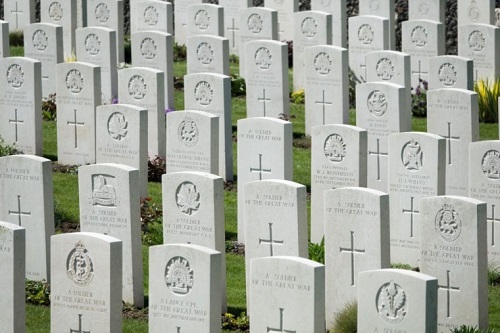Hundreds of thousands of predominantly black and Asian service personnel who died fighting for the British Empire have not been formally commemorated in the same way as their Caucasian comrades because of decisions underpinned by “pervasive racism”, an investigation has concluded.
That number could be as high as 350,000. In addition, between 45,000 and 54,000 additional casualties were not equally commemorated.
All military service personnel should be commemorated in the same way, with their name engraved on a headstone over an identified gave or on a memorial to the missing.
The inquiry into war graves was ordered by the Commonwealth War Graves Commission in 2019 following Channel 4’s Unremembered documentary, which showed how the graves of African soldiers in Tanzania had been abandoned. In contrast, the resting places of European officers were well tended and looked after.

Historian and professor David Olusoga said: “It is an absolute scandal. It is one of the biggest scandals I’ve ever come across as a historian, but the biggest scandal is that this was known years ago.”
Olusoga is behind the production company that produced the documentary, which was presented by Labour MP David Lammy, and featured pioneering research from Professor Michèle Barrett.
The Special Committee, chaired by Sir Tim Hitchens, Commonwealth War Graves Commissioner and President of Wolfson College Oxford, says that: “Though there were clearly unique challenges and difficulties faced on some of the battlefields outside of Europe, there is also evidence that many casualties in these regions were denied named commemoration where it was possible, and some were deliberately treated differently.
“In short, these men were deprived of the equality in death promised by the Imperial War Graves Commission and of the opportunity for their story to be told.”
UK defence secretary, Ben Wallace expressed “deep regret” over the error and told MPs there was “no doubt” that prejudice had played a part in what happened.
The commission found that in the 1920s for example FG Guggisberg, the governor of the Gold Coast in Africa said “the average native…would not understand or appreciate a headstone”.
He received a response from Lord Arthur Browne, the principal assistant secretary at the IWGC, which said: “In perhaps two or three hundred years’ time, when the native population had reached a higher stage of civilisation, they might then be glad to see that headstones had been erected on the native graves and that the native soldiers had received precisely the same treatment as their white comrades.”
The commission’s vice-chairman, Lieutenant General Sir Bill Rollo KCB said: “One hundred years ago our predecessors set out a clear commitment to commemorate the First World War dead equally, by name, in a way which had never been done before. They succeeded remarkably in Europe, but as the report makes clear, they fell short in a number of other parts of the world.
“This report will enable us to continue and, ultimately, complete our work to commemorate and recognise all those who lost their lives in this catastrophic conflict. Where names can be found they will be. Where they cannot, the Commission, working directly with the communities affected, will seek alternative means by which their memory can be properly preserved. We will also widen the search to cover both World Wars.”

